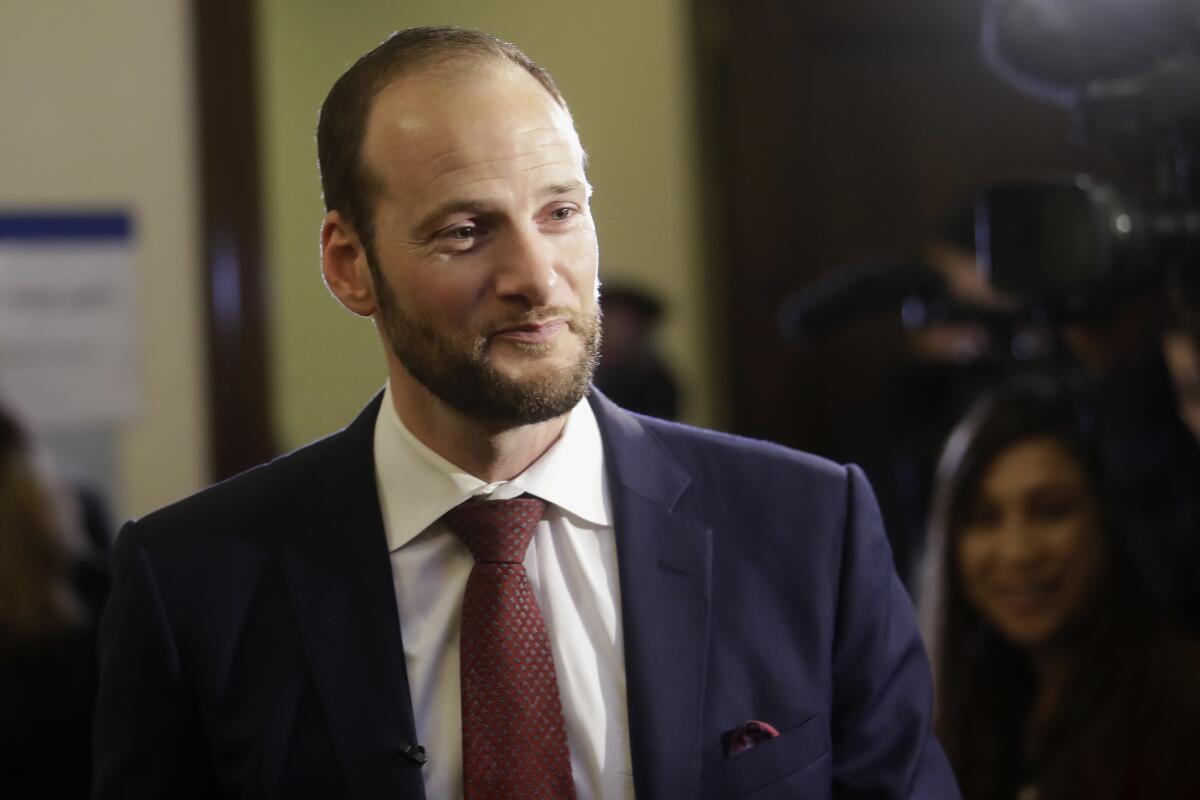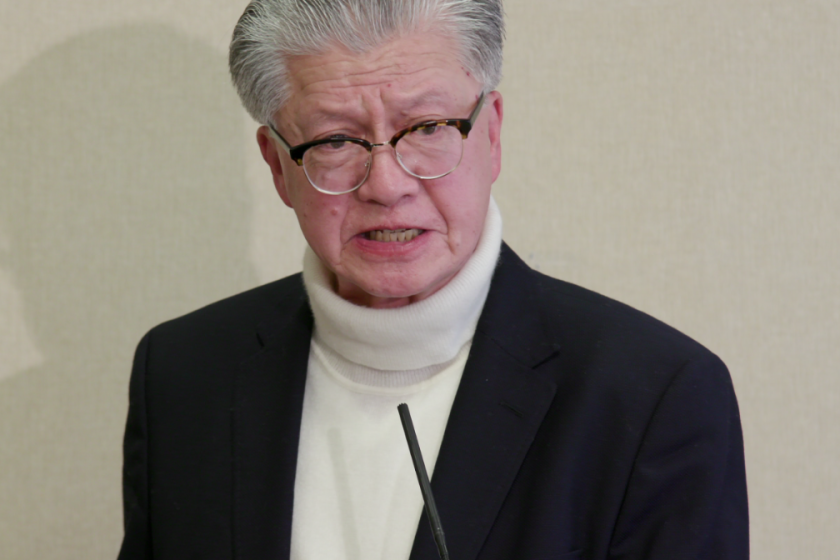San Francisco police used rape victims’ DNA to try to ‘incriminate’ them, D.A. says

- Share via
San Francisco’s district attorney said police used a database with DNA collected from victims of rape and sexual assault to connect some of them to crimes.
Dist. Atty. Chesa Boudin said Monday that the San Francisco Police Department crime lab had been using the database to “attempt to subsequently incriminate” victims of rape and sexual assault in connection with unrelated cases, a practice he called “legally and ethically wrong.”
The district attorney called for an immediate end to the alleged practice, committed to working with police to address the allegations and urged changes to local and state laws, his office said in a statement.
“I am disturbed that victims who have the courage to undergo an invasive examination to help identify their perpetrators are being treated like criminals rather than supported as crime victims,” Boudin said. “We should encourage survivors to come forward — not collect evidence to use against them in the future. This practice treats victims like evidence, not human beings.”
Boudin alleged DNA evidence collected from a rape victim was later used to identify and arrest her as a suspect in an unrelated crime, according to a police statement Monday.
A source with knowledge of the case told The Times on Tuesday that Boudin dismissed it due to a possible violation of the 4th Amendment, which protects against unreasonable searches and seizures.
The case involved a recent property crime, according to the district attorney’s office.
Police officials and Boudin’s office have largely kept mum about the specifics.
Neither police nor prosecutors would provide further details about the alleged property crime, including what specific kind of crime is suspected to have occurred and when it occurred.
Police spokespeople provided a statement issued Monday by Chief Bill Scott but declined to answer questions.
The chief said that if DNA collected from a victim of rape or sexual assault was used to identify and arrest a person as a suspect in another crime, he was “committed to ending the practice.”
San Francisco’s police chief has accused Dist. Atty. Chesa Boudin’s office of withholding information and evidence from police.
Existing DNA collection policies have been legally vetted and are in line with state and national forensic standards, Scott said.
“However, there are many important principles for which the San Francisco Police Department stands that go beyond state and national standards,” he said. “We have long embraced sanctuary for our undocumented immigrant communities, for example, and we years ago ended the practice of using condoms as evidence in prostitution cases.”
The chief said the department will immediately start reviewing DNA collection practices and policies and that he has consulted with San Francisco City Atty. David Chiu.
There is a possibility the suspect was identified through a DNA match to evidence in a “nonvictim DNA database,” Scott said.
But Boudin’s questions were “sufficiently concerning” that the chief said he asked his assistant chief of operations to conduct a thorough review.
“Whatever disagreements Dist. Atty. Boudin and I may have, we agree that this issue needs to be addressed,” Scott said. “At the end of the day, our respective departments exist to do justice for victims of crime. The last thing we should ever do is discourage their cooperation with us to accomplish that.”
State officials and organizations that work with victims of rape and sexual assault also spoke out Monday.
Pamela Tate, co-executive director of Black Women Revolt Against Domestic Violence, said the database cannot be considered a “blanket waiver” of victims’ rights to not self-incriminate.
“This type of misrepresentation will have a chilling effect to Black women and women of color in reporting crimes of sexual assault,” Tate said.
The legal system isn’t designed to support survivors of sexual violence, said KellyLou Densmore, director of the San Francisco Office of Sexual Harassment and Assault Response and Prevention.
“Many survivors already choose not to share their experiences, particularly transgender people and cisgender women of color, LGBT people and other marginalized groups who may distrust police and face other significant barriers to receiving support after sexual assault,” Densmore said.
Michael Risher, a civil rights attorney who works with the American Civil Liberties Union of Northern California, said the alleged practice violates victims’ privacy.
Federal law prohibits law enforcement from uploading sexual assault victims’ DNA samples into the national Combined DNA Index System, which is used to match DNA from crime scenes with samples taken from people convicted of or arrested for crimes, Risher said.
“Local agencies that maintain separate databases should follow this sensible rule to ensure that victims’ DNA is not retained and used for unrelated purposes,” he said. “This is especially important for California law enforcement agencies like SFPD because, unlike the federal Constitution, the California Constitution expressly protects privacy rights and victims’ rights.”
After a sexual assault is reported, victims are asked to undergo an examination in which evidence is collected from bodily fluids, fingernail scrapings, and any bite or scratch marks, Boudin’s office said.
“The victim submits their own DNA sample in order to exclude DNA that comes from the victim, as opposed to the suspect,” according to the statement.
The Vietnamese American man’s lawsuit alleges prosecutors refused to file hate crime charges and reached a plea deal without notifying him.
But research shows only a small percentage of victims go through sexual assault testing, an invasive and traumatic process for many survivors, prosecutors said.
“Victims of sexual assault consent to their DNA collection for this purpose, not so that their DNA will be retained in a local law enforcement database permanently to be searched years later,” prosecutors said. “Using victims’ DNA in order to potentially incriminate them in the future further dissuades sexual assault survivors from undergoing what is already a very difficult and emotional process.”
State Sen. Scott Wiener (D-San Francisco) and San Francisco Supervisor Hillary Ronen also condemned the alleged practice.
Wiener said he was working with Boudin’s office to address the issue with state legislation “if needed.”
Ronen said she asked Chiu to draft legislation to prevent any kind of evidence from a victim’s rape kit, including DNA, from being used for anything other than investigating that case.
The Associated Press contributed to this report.
More to Read
Sign up for Essential California
The most important California stories and recommendations in your inbox every morning.
You may occasionally receive promotional content from the Los Angeles Times.
















